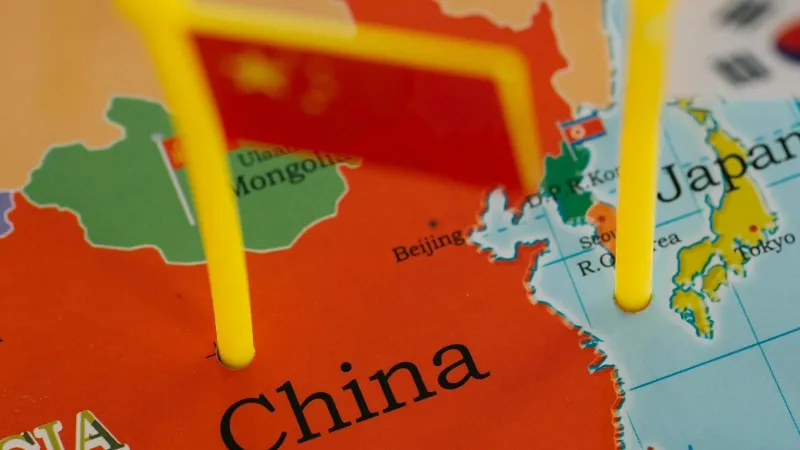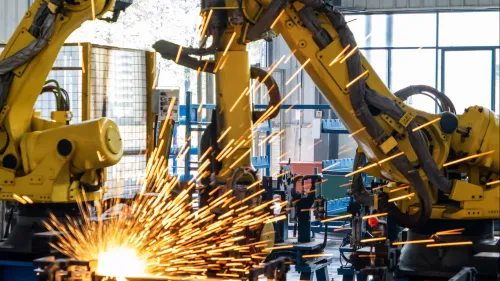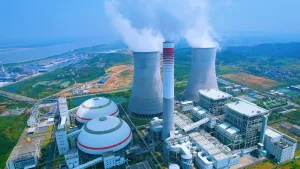
G4 manufacturing index rises to 49.6 in May
This is the highest since September 2022.
Manufacturing conditions across G4 nations—the US, China, Japan, and Germany—improved in May, according to the data from S&P Global's Flash Purchasing Managers' Index (PMI).
The headline activity indicator, while still in contraction territory, improved to 49.6 from 48.3, marking the highest level since September 2022.
This positive trend was driven by an increase in new orders, with stocks of finished goods also increasing for the first time since May 2023.
China and Japan played significant roles in this recovery, showing robust improvements in their manufacturing sectors.
Separately, US manufacturing output was nearly flat in April, with a slight decline of 0.3% from March and 0.5% lower than April 2023 in seasonally adjusted data. The performance varied across sectors, with apparel and leather showing a significant decrease of 15.5% while computer and electronics manufacturing improved by 4.3%.
The EU's Carbon Border Adjustment Mechanism (CBAM) is expected to impact exports from South Africa to the EU, with projections suggesting a potential decrease of up to 10%.
The CBAM covers imports of certain products including cement, iron, steel, aluminium, fertilisers, electricity, and hydrogen, aiming to align costs between EU manufacturers subject to carbon trading and importers from other countries. South Africa is particularly concerned about the impact on its exports of iron, steel, and aluminium, which accounted for a significant portion of its trade with the EU.
Tariffs spark retaliation
The US administration announced the expansion of Section 301 tariffs, targeting $18b worth of products in new energy, semiconductor, and medical sectors.
This move has triggered an anti-dumping investigation by the Chinese government into imports of polyoxymethylene copolymer from the US and other countries. The investigation is seen as a potential retaliation against the new US tariffs, with implications for manufacturers in affected industries.
The impact of potential US tariffs on trade with mainland China is being closely watched, with expectations of reduced trade levels and disruptions across various industries.
Connector economies like Canada, Mexico, Germany, and East Asian countries are likely to benefit from trade diversion caused by tariff escalations between the US and mainland China.
In the automotive and technology sectors, countries are responding to new tariff measures, with Canada considering restrictions on imports of Chinese EVs.
Mainland Chinese automakers are racing to get vehicles into markets ahead of potential tariffs, whilst Japan and ASEAN countries are collaborating to counter mainland China's presence in the EV market.
Nvidia reported a significant revenue increase driven by demand for AI applications despite supply constraints and export control restrictions affecting its operations in China.
South Korea is investing heavily in securing additional lithium reserves to support its battery industry, amidst a slowdown in battery exports from major tech exporters.
The EU's plan to restrict vehicle exports to Belarus aims to prevent sanctions evasion on Russia, highlighting trade dynamics in the region. Meanwhile, CMA CGM SA anticipates rate adjustments in container shipping as new vessel deliveries expand capacity.
Logistics rates meanwhile continue to increase ahead of peak season with disruptions potentially building. This is even though shippers expect even though shippers expect new capacity to offset losses from Red Sea-related remedies.
An example of this is the report of container availability problems in Northern China, preventing goods from being shipped and adding to end-to-end transit times.
Consumer sector strategies
In the consumer sector, retailers like Under Armour Inc. are refocusing on core brands, streamlining supply chains, and tightening inventory management.
Major trends in retail include supply chain investments, inventory discipline, and strategies to adapt to shifting consumer sentiments.
The TJX Companies Inc. has capitalised on inventory trends as companies seek to unload excess inventories while chipmaker Nvidia Corp. is riding the AI wave while its consumer business remains steady.
















